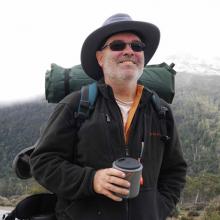What Is It
Some claim that the collapse of the Twin Towers on September 11, 2001 was actually caused by a controlled demolition orchestrated by the U.S. government. Dramatic conspiracy theories of this kind are all over the place, but they are often dismissed as crazy. Sometimes, however, they turn out to be true: the NSA, as we have learned, conducted secret surveillance of millions of people for more than ten years. Does this show that we shouldn’t be so dismissive of conspiracy theories after all, or that we simply refuse to accept the existence of coincidence? What is a conspiracy theory, anyway, and how is it different from other kinds of theories? John and Ken form a cabal with Brian Keeley from Pitzer College, author of "On Conspiracy Theories."
Listening Notes
Was the JFK assassination the work of one man or many? Are conspiracy theorists still searching for evidence decades later because the conspirators meticulously covered their tracks or because the evidence doesn’t exist? John and Ken discuss how seriously theories of this sort should be taken. They are joined by Brain Keeley, professor of philosophy at Pitzer College and author of “Conspiracy Theories.” Despite their reputation of hosting paranoia and rampant imaginations, Brain argues that the theories themselves may still deserve examination – conspiracy theories which turned out to be true serve as testament.
Brian deems the desire to believe in conspiracy theories as an extension of the human urge to find meaning in our lives and the world around us. These theories, however outlandish, at least provide comforting explanations for otherwise unexplainable or random events. John moves onto the question of whether we should give any weight to these theories, especially when it is impossible to prove many of them wrong. To this, Brian responds that when studying the “human world” rather than the natural world, we must account for the possibility that our search for evidence may be challenged by attempts to hide evidence. Ken adds in that conspiracy theories can also provide more thorough explanations of an event than the official theory may have to offer.
Prompted by a listener’s comment, John suggests that the appeal of conspiracy theories is connected to the appeal of fiction writing in general. It provides us with stories that entertain us, giving us more than reality alone can. Ken and Brian point out that conspiracies also place an emphasis on human agency and provide us with clear villains behind unfortunate events, similar to much fiction in this aspect as well. John and Ken end with the a disagreement about whether the urge to invent conspiracy theories is mostly unfounded speculation or a valid reaction, deeply-rooted in knowing that others work against us.
- Roving Philosophical Report (Seek to 6:22): Caitlin Esch speaks to Tom Wood of the University of Chicago about how many modern-day Americans believe in conspiracy theories, and what belief in these theories is correlated with.
- 60-Second Philosopher (Seek to 46:32): Ian Shoales expresses why he associates conspiracy theories with the smell of whiskey and stale beer.
